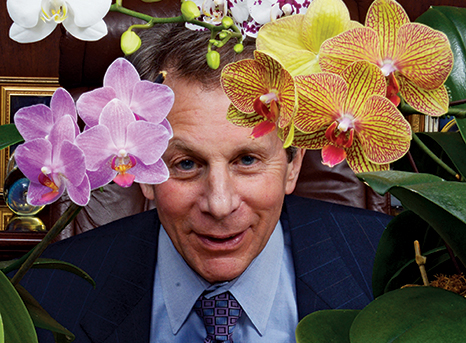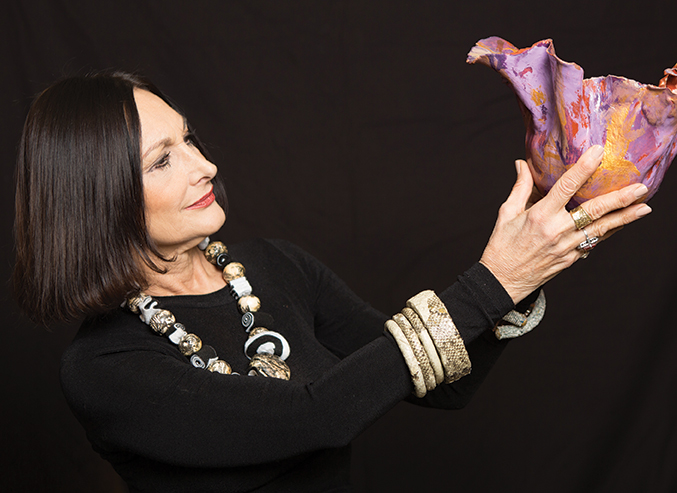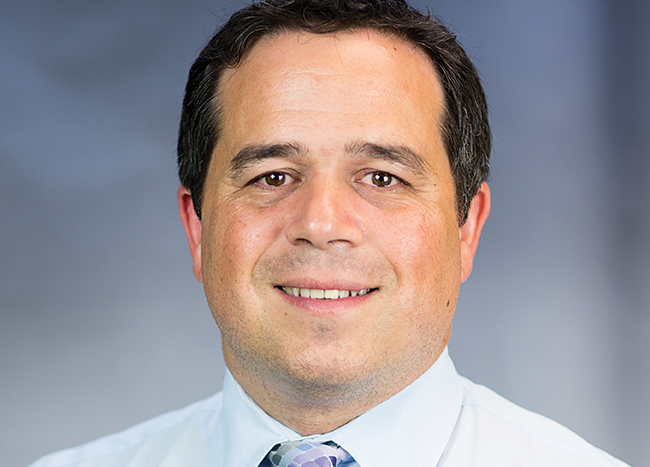Robert S. Reiffel is a stickler for details.
And that turns out to be just what the doctor ordered in his work as a hand and plastic surgeon – and in his passion for orchids.
“I find hand surgery lends itself to what my wife calls my ‘obsessive-compulsive personality,’” he says. “With hand surgery – and eyelid surgery – there’s no such thing as too close attention to detail.”
That’s because hand and plastic surgery are about so much more than subtle stitching. “They’re about how you care for the tissues,” Reiffel says.
He learned that dramatically as part of the Bellevue Hospital team that reattached student musician Renee Katz’s right hand after it was severed when she was pushed from a New York City subway platform in 1979. Though she would never play the flute again, Katz became a successful occupational therapist.
“Unfortunately, she didn’t get the best result, because her hand was crushed by a subway train,” Reiffel (pronounced RAY-fel) says. “The more delicately you can treat the tissues, the better the result. Had it been cut cleanly, there would’ve been much less trauma.”
The delicacy needed for such microsurgery comes in handy when cultivating orchids. Though their beauty and versatility – there are more than 30,000 species ranging across every continent but Antarctica – make them highly seductive, orchids won’t bloom for just everyone. Reiffel has the touch. There are 25 in his White Plains office, another 10 in his Scarsdale home, including moth orchids and the showy cattleya orchids, which are probably what we think of when we think of orchids and corsages.
The orchid is a kind of Goldilocks flower: It likes a lot of light but not dry heat, humidity but not wetness. It’s no loner. “A group of orchids can provide one another with enough humidity,” Reiffel says.
He even won an award for Best Original Photography Exhibit at the World Financial Center’s “The Greater New York Orchid Show” in 1993. His techniques have included using a mirror set up on a tripod to reflect the light back on the orchid’s tunnel-like center. In the old days of 35mm cameras, he’d take a whole roll of film. Now with digital photography, he can see what quality he has right away.
Reiffel came by his love of orchids accidentally – although Freud might disagree with that.
“A good friend came to dinner with a phalaenopsis (moth orchid),” Reiffel remembers. “Someone else came over and saw it. Once they know you like them, they give you orchids.”
His medical career has been a lot more deliberate. The Yale graduate earned his medical degree from Columbia University’s College of Physicians and Surgeons before going on to an internship and residency in general surgery at Roosevelt Hospital. There he discovered his love of the hand, that complex extremity that sets us apart from so many other animals. There were two ways to go with it – orthopedics or plastic surgery. Reiffel chose the latter, which led to a residency in plastic surgery and a fellowship in hand surgery at New York University Medical Center.
He sees a parallel between his medical disciplines and his plants.
“Just the fact that you’re trying to make things better,” he says. “In plastic surgery, it’s how you care for the tissues. With the plants, you’re providing an environment in which they can grow and rebloom. They’re like babies. They’re totally dependent on you.
“When you get something to rebloom, you know it’s happy,” he says. “It will last a long time. Then you have the satisfaction of having done something well.”
PETAL POWER
Orchid lovers like Dr. Robert S. Reiffel won’t want to miss The New York Botanical Garden’s 13th annual orchid show. This year’s theme is “Chandeliers,” featuring blooming baskets and cylinders not only in the Enid A. Haupt Conservatory’s Palm Court and Seasonal Exhibition Galleries but also, for the first time, throughout the conservatory. The show is designed by Francisca Coelho, the Garden’s Vivian and Edward Merrin vice president for glasshouses and exhibitions, who’s been called “the best female head gardener at present working under glass.” For more, call 718-817-8700 or visit nybg.org.




